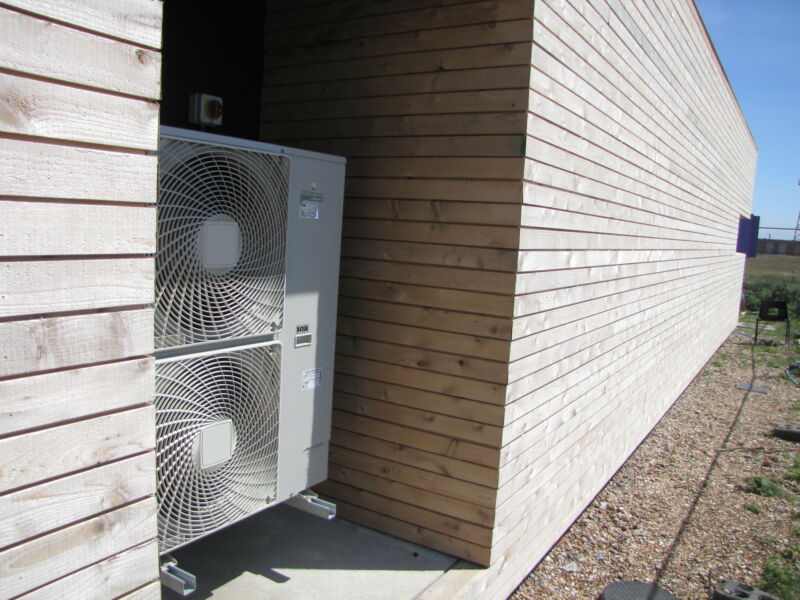Few exceptions to the rule that going electric reduces emissions

Enlarge / An air source heat pump nestled in a nook. (credit: 51% Studios Architecture)
One peppy slogan for the energy revolution is to "electrify everything"-to replace fossil fuel applications with electrical devices that can be powered by a clean grid. Of course, most grids are nowhere close to emissions-free, and this can complicate the impact of electrification. With the electricity available to you, is it definitely the case that any electric car, for example, will produce fewer emissions than an efficient gas-powered vehicle?
While that question can be frustrating for a consumer, it could be even thornier for policymakers. If grids have to get cleaner for the "electrify everything" strategy to be beneficial, programs encouraging things like EVs might not have the intended effect. To provide clearer answers to this question, a team led by Florian Knobloch at Radboud University did the math to find out how green EVs and heat pumps for home heating are in different countries.
Pump up the heatIf you're not familiar, heat pumps work on the same basic principle as an air conditioner-using refrigerant coils to dump heat from one side to the other. But instead of just dumping heat from your house into the outside air like an air conditioner does, these can also run in the other direction, dumping heat energy from the outside air (or ground) into your home-even at low outside temperatures. This process is extremely energy-efficient, even compared to high-efficiency gas furnaces.
Read 9 remaining paragraphs | Comments